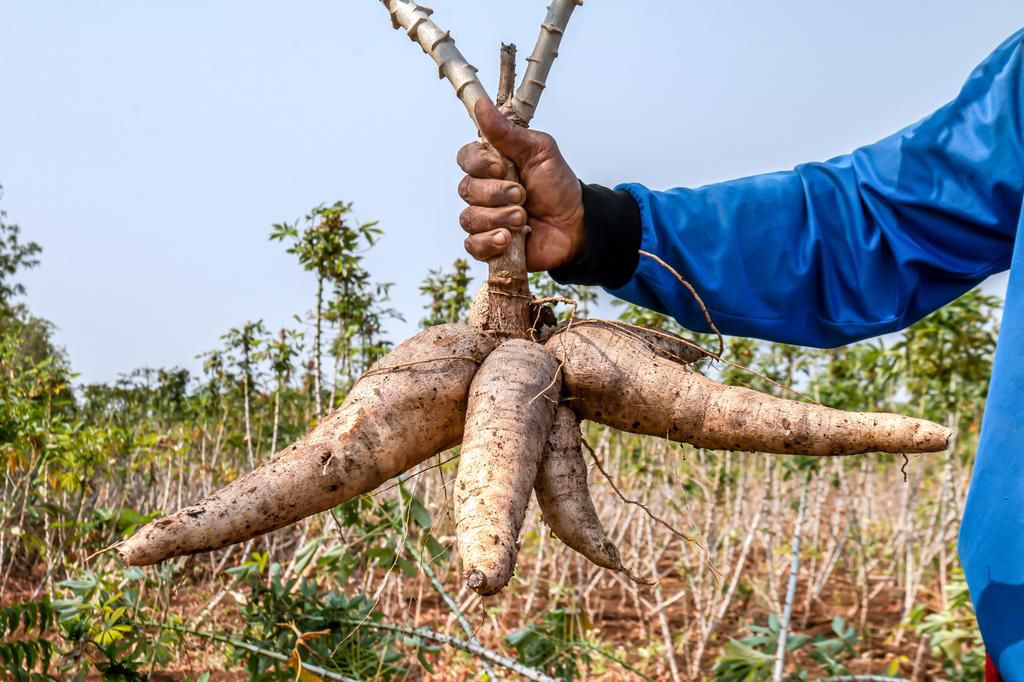Cassava is the second most consumed source of carbohydrates in sub-Saharan Africa, but the crop's industrial potential has been largely unexploited.
It's worth noting that both crops {cassava and cocoa} are important in various ways, and their cultivation depends on factors such as climate, soil conditions, and market demand.
Cassava is a tropical root crop that is a staple food for millions of people in developing countries. It is valued for its high carbohydrate content and versatility in culinary applications. Cassava is also used in industrial processes to produce starch and other products.
Cocoa, on the other hand, is a tropical tree crop known for its seeds, which are used to produce cocoa beans. These beans are the primary ingredient in chocolate production.
Cocoa cultivation is often associated with specific agroecological zones and has economic significance for many countries, particularly in West Africa, which is a major cocoa-producing region.
The industrial uses of cassava highlight its versatility and importance in various sectors, ranging from food and beverages to textiles, biofuels, and beyond.

However, some of the world's largest alcoholic beverage companies are finding ways of tapping into the potential of cassava.
While cassava and cocoa serve different purposes, there may be discussions about diversifying agricultural practices and crops in certain regions. Some reasons why cassava might be considered include:
- Diversification of agriculture: Growing different crops can help farmers diversify their income sources and reduce the risk of crop-specific diseases or market fluctuations.
- Food security: Cassava is a staple food in many developing countries and can contribute to food security by providing a reliable source of carbohydrates.
- Climate resilience: Cassava is known for its resilience to various environmental conditions, such as drought and poor soil fertility, making it a viable option in certain regions.
- Industrial uses: Cassava has industrial applications, such as starch production, which can contribute to the development of local economies.
- Cassava can be used as a feedstock for ethanol production. The fermentation of cassava starch or the enzymatic hydrolysis of cassava cellulose can yield ethanol, which is an important biofuel.
Cassava by-products, such as cassava peels and leaves, are used as animal feed. These by-products can be a good source of energy and nutrients for livestock.
Cassava starch is utilized in the textile industry for sizing and finishing fabrics. It provides a smooth surface and enhances the strength of the fabric.
Cassava starch can be used as a pharmaceutical excipient, serving as a binder, disintegrant, and filler in the production of tablets and capsules.
The product can be processed to produce glucose and syrup, which find applications in the food and beverage industry as sweeteners and ingredients.
However, it's important to consider the existing agricultural practices, market demand, and economic factors in any region before proposing a shift from one crop to another.
Sustainable and informed agricultural practices are crucial for ensuring food security, economic stability, and environmental conservation.
Additionally, efforts to enhance the productivity and sustainability of existing crops, such as cocoa, can be equally important.
)
)
)
)
)
)
)
)
)
)
)
)
)
)
)